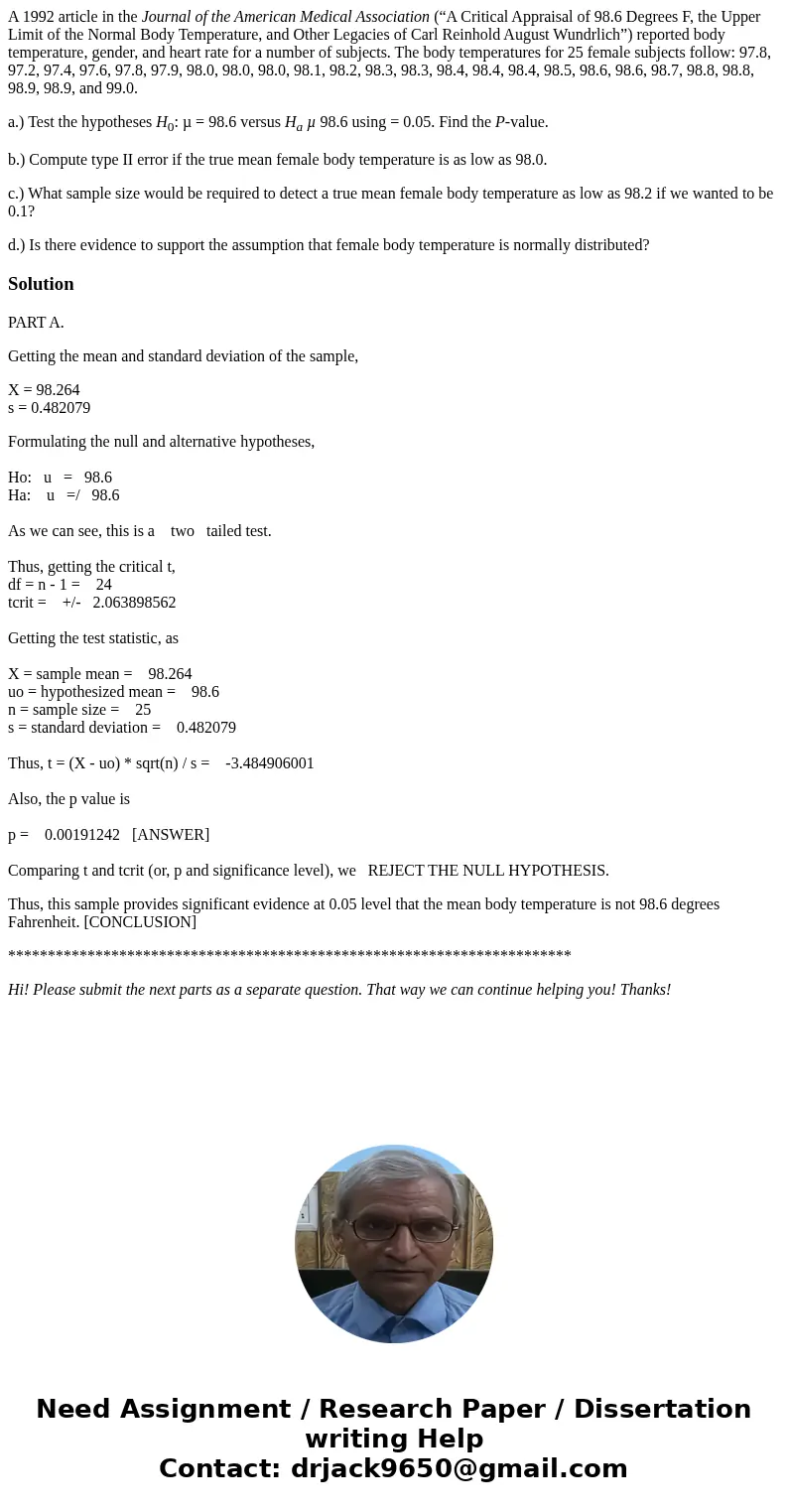A 1992 article in the Journal of the American Medical Associ
A 1992 article in the Journal of the American Medical Association (“A Critical Appraisal of 98.6 Degrees F, the Upper Limit of the Normal Body Temperature, and Other Legacies of Carl Reinhold August Wundrlich”) reported body temperature, gender, and heart rate for a number of subjects. The body temperatures for 25 female subjects follow: 97.8, 97.2, 97.4, 97.6, 97.8, 97.9, 98.0, 98.0, 98.0, 98.1, 98.2, 98.3, 98.3, 98.4, 98.4, 98.4, 98.5, 98.6, 98.6, 98.7, 98.8, 98.8, 98.9, 98.9, and 99.0.
a.) Test the hypotheses H0: µ = 98.6 versus Ha µ 98.6 using = 0.05. Find the P-value.
b.) Compute type II error if the true mean female body temperature is as low as 98.0.
c.) What sample size would be required to detect a true mean female body temperature as low as 98.2 if we wanted to be 0.1?
d.) Is there evidence to support the assumption that female body temperature is normally distributed?
Solution
PART A.
Getting the mean and standard deviation of the sample,
X = 98.264
s = 0.482079
Formulating the null and alternative hypotheses,
Ho: u = 98.6
Ha: u =/ 98.6
As we can see, this is a two tailed test.
Thus, getting the critical t,
df = n - 1 = 24
tcrit = +/- 2.063898562
Getting the test statistic, as
X = sample mean = 98.264
uo = hypothesized mean = 98.6
n = sample size = 25
s = standard deviation = 0.482079
Thus, t = (X - uo) * sqrt(n) / s = -3.484906001
Also, the p value is
p = 0.00191242 [ANSWER]
Comparing t and tcrit (or, p and significance level), we REJECT THE NULL HYPOTHESIS.
Thus, this sample provides significant evidence at 0.05 level that the mean body temperature is not 98.6 degrees Fahrenheit. [CONCLUSION]
***********************************************************************
Hi! Please submit the next parts as a separate question. That way we can continue helping you! Thanks!

 Homework Sourse
Homework Sourse